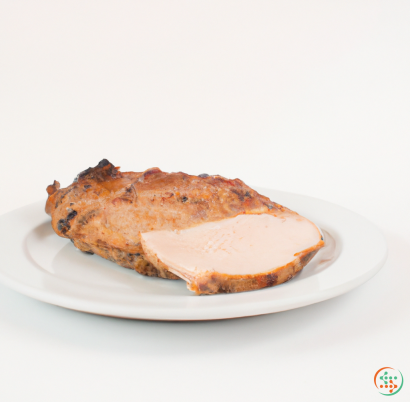Turkey Eggs: Complete Sugars and Carbohydrate Profile
Turkey Eggs: Considered a good source of carbohydrates?
Yes, Turkey eggs can be a good source of lipids. Lipids are essential fatty acids that provide energy and help with the body’s absorption of vitamins and minerals. Turkey eggs are high in healthy omega-3 fatty acids, monounsaturated fats, and polyunsaturated fats which all contribute to a balanced lipid profile and can reduce your risk for heart disease. Furthermore, turkey eggs are lower in cholesterol than other poultry eggs making them an excellent choice for those looking to limit their cholesterol intake. Additionally, turkey egg yolks are full of fat-soluble vitamins A and D, both of which are important for growth and development. Lastly, turkey eggs are also packed with antioxidants like lutein and zeaxanthin that have been found to help protect against age-related vision loss. In summary, turkey eggs can be an excellent source of beneficial lipids as well as many essential vitamins, minerals, and antioxidants.
Turkey Eggs ‐ Types of Sugars
Introduction
Eggs are an important source of nutrition for many people around the world. Chicken eggs, especially, have been a staple in diets for centuries. Recently, investigations into the nutrient content of poultry eggs has led to an increased knowledge of their chemical composition. This paper aims to provide insight into some of the more detailed components of chicken egg chemistry, with a focus on the fats and lipids found inside turkey eggs. Specifically, the types of fat and lipid present in these specific type of eggs will be discussed.
Background
Fats (also referred to as triglycerides) are made up of glycerol and three fatty acid chains that are either saturated or unsaturated. Lipids are similar to fats but differ from them due to containing additional kinds of molecules including steroids, phospholipids, waxes, carotenoids, among others. All animals contain fats and lipids; they help maintain internal body temperature and energy production, aid in biological processes such as digestion and absorption of nutrients, store energy, and provide structural support to cellular walls.
Within poultry eggs specifically lies various fatty acids, cholesterol-containing lipids, vitamins, enzymes, proteins, minerals, carbohydrates, oxidants, and water. These components can vary depending on both the breed of the animal laying the egg, as well as what the animal has eaten. The majority of the aforementioned elements make up the yolk membrane, albumen, and the shell membranes. While a complete analysis would require looking at all parts of the egg, this paper focuses primarily on the fats and lipids found in each component.
Lipids Found Inside Turkey Eggs
Turkey eggs consist mainly of two major categories of lipids: triacylglycerols, also known as fats, and phospholipids. Triacylglycerols are made from one molecule of glycerol attached to three fatty acid molecules and serve as an efficient form of stored energy in living organisms. Phospholipids, meanwhile, are composed of two hydrophobic fatty acids connected to a hydrophilic phosphate group. They are prevalent along cell walls, helping to mediate the movement of substances within and out of cells. Additionally, there is also cholesterol located in most egg layings, although amounts vary greatly.
Triacylglycerols Within Turkey Eggs
Most of the triacylglycerols in turkey eggs come in the forms of long-chain polyunsaturated fatty acids (LCPUFAs), particularly linoleic and alpha-linolenic acids. Linoleic acid, which is derived from plants, is often found in vegetable oils, nuts, cereals, legumes, and seeds. Alpha-Linolenic acid, which is produced by certain marine algae, is also common in some vegetables oils and seeds. Both LCPUFAs possess essential functions in mammalian tissues and are vital for development, reproduction, growth, and myelination of nerves. Due to their importance, it is believed they must be ingested through food sources.
Some studies report that turkey eggs can also contain smaller concentrations of stearic, palmitic, oleic and eicosadienoic fatty acids. Stearic acid, commonly found in beef and cocoa butter, provides firmness to chocolates and promotes precipitation of cocoa flavonoids during manufacturing. Palmitic acid is found in safflower oil and palm kernel oil, while oleic acid makes up sixty percent of olive oil’s fatty acid content. Lastly, Eicosadienoic acid is usually sourced from vegetable oils like soybean and sunflower oil.
Phospholipids Within Turkey Eggs
While triacylglycerols provide an energy source, the addition of phospholipids allows for transition between aqueous solutions and semi-solid material. Some of the main phospholipids that occur in turkey eggs include phosphatidylethanolamine, phosphatidylinositol, sphingomyelin, and lysophosphatidylcholine.
Phosphatidylethanolamine, also known as “Inositide”, consists of two fatty acid chains bound with ethanolamine. It helps facilitate communication and metabolism in both bacterial species and human cells. Structurally speaking, it serves as an emulsifier since its polar head binds poorly with water while the two tails act as surfactants, thus allowing absorptions and releases of nonpolar molecules.
Meanwhile, phosphatidylinositol, another kind of phospholipid, exists in several different hydrolyzed states. One of those being PIP2 (phosphatidylinositol 4,5-bisphosphate). Cells use PIP2 as a second messenger, when receiving signals sent by a hormone. When activated by the enzyme PI3K (Phosphoinositide 3-kinase), breakdown of PIP2 occurs leading to formation of other molecules used in signalling pathways.
Thirdly, Sphingomyelin, whose primary function is forming part of the nervous tissue’s layer barring outside influence, composes around 30% of the total brain lipids and plays significant roles in cell signaling. Studies indicate that it furnishes higher levels of protection from certain infectious agents than does phosphoglyceryl factors or cholesterol-rich fractions. Its structure includes a sphingosine backbone chain connected to a phosphocholine at the R1 position, and a total of two acyl groups attached to four of the nitrogen B positions.
Lastly, lysophosphatidylcholine refers to intermediary products formed after the breakdown of phosphatidylcholine and may act as precursors of prostaglandins and thromboxanes. In regards to turkey eggs, they typically contain only small amounts of this particular lipid.
Cholesterol Present in Turkey Eggs
The amount of cholesterol located in any given egg varies greatly depending on the diet of the animal producing them. Generally, however, turkey eggs contain between 160 to 400 mg/100g of cholesterol. That number increases slightly over time. Smaller amounts of cholesterol’s esters and metabolites are also present due to partial metabolic processes. Interestingly enough, consumption of dietary cholesterol has generally been associated with lower risk of coronary heart disease.
Conclusion
This study focused on the portrayal of certain lipids and fats present in turkey eggs. After carefully examining existing research pertaining to the matter, it was revealed that turkey eggs contain mostly LCPUFAs, in addition to trace amounts of smaller fatty acids. Further, phospholipids including phosphatidylethanolamine, phosphatidylinositol, sphingomyelin, and lysophosphatidylcholine were discovered in examination of turkey eggs, as well as moderate amounts of cholesterol. Therefore, it can be concluded that turkey eggs contain a variety of both fats and lipids and can be beneficial to humans who partake in eating them.







